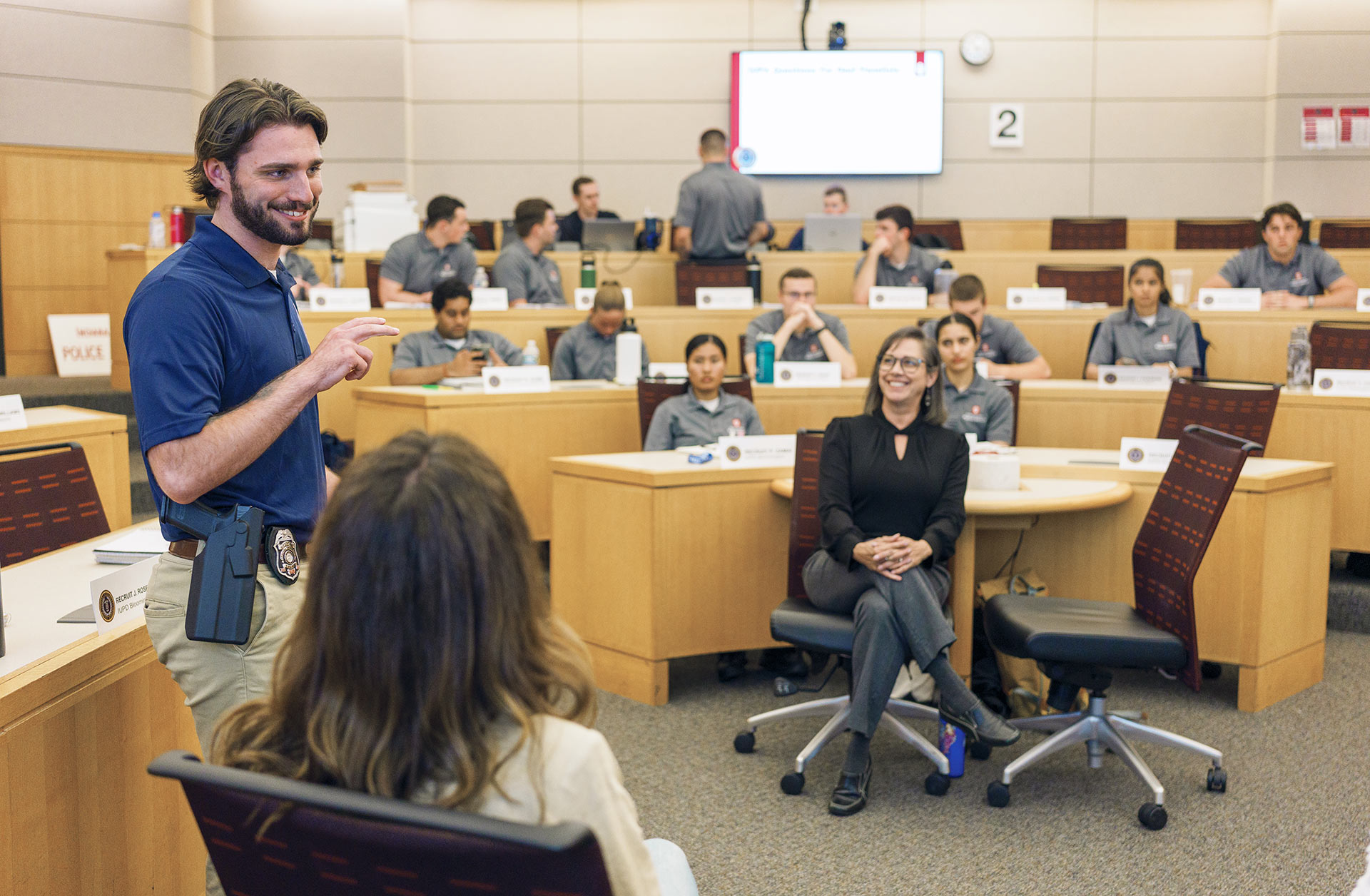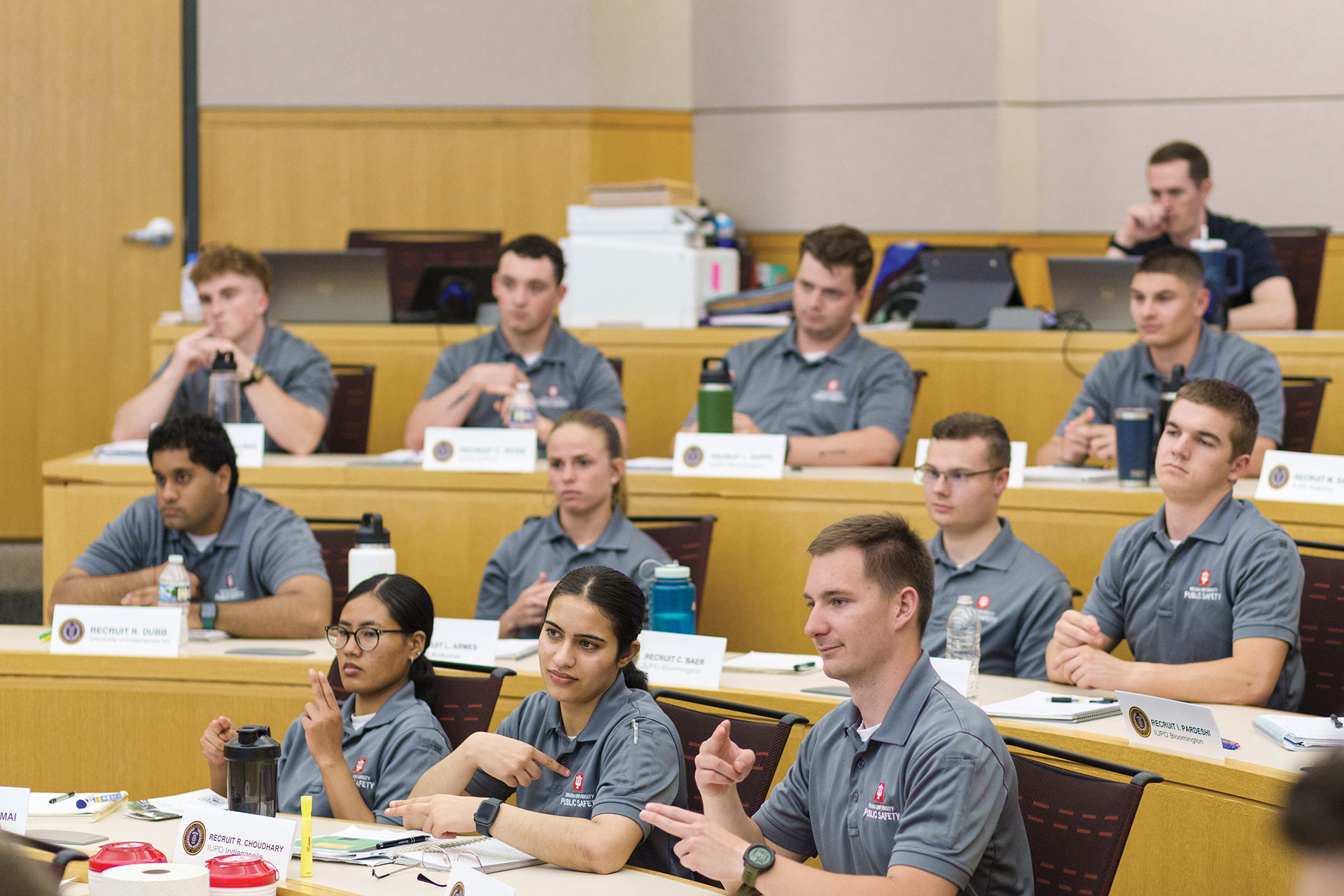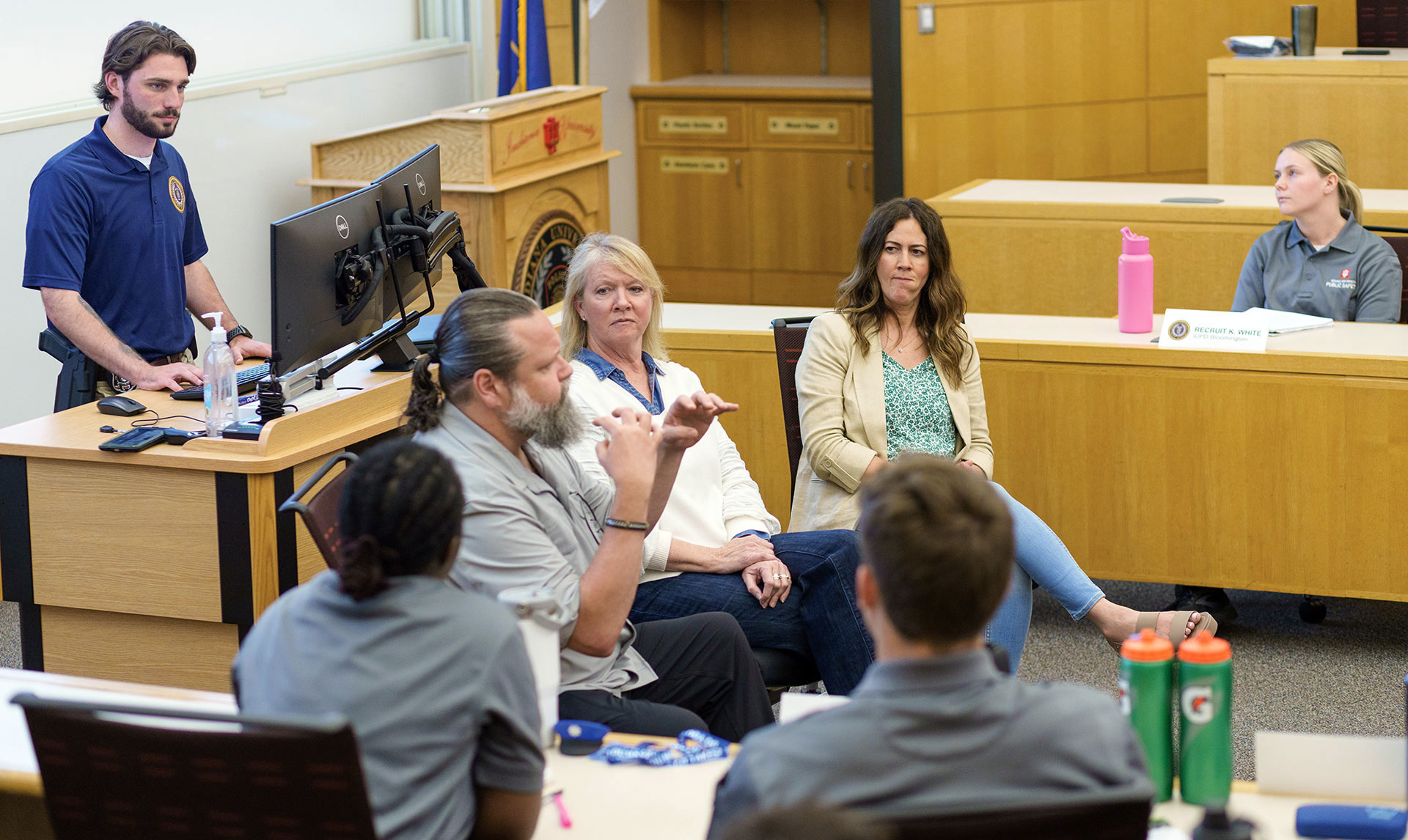
In June, recruits with the Indiana University Police Department (IUPD) Academy made history when they stepped into the classroom to take part in the department’s first-ever training on Deaf culture awareness and American Sign Language (ASL).
The nearly three-hour course is taught by deaf Indiana University faculty members who, through ASL and interpreters, delve into various aspects of Deaf culture and share personal stories about their interactions with law enforcement. They discuss how they’ve communicated with officers during traffic stops using hand gestures, teach recruits basic signs like “police” and “emergency” and describe common challenges officers may face while on duty when encountering someone who is deaf or hard of hearing. Above all, they emphasize that patience is key to preventing dangerous encounters with members of the Deaf community during crisis situations.
The training is the brainchild of Brennan Cox, a second-year IU law student who became a part-time IUPD officer while pursuing his undergraduate degree. His interest in studying ASL and Deaf culture was sparked by a desire to learn a language that would be beneficial in a law enforcement career. “I have not met or personally known any law enforcement officers who know ASL,” he tells American Police Beat. “Learning ASL would provide me with the opportunity to serve my community, especially the typically overlooked Deaf community.”
When Cox was a recruit in the 50th IU Police Academy in 2023, he had already completed one year of ASL during his undergraduate studies. This led him to research and ask law enforcement personnel and ASL professors about how officers interact with the Deaf community. “I found a significant gap in law enforcement’s service to the Deaf community, due to a lack of understanding of Deaf culture and ASL,” he explains. “Additionally, I have watched footage from other law enforcement agencies across the country involving excessive force with members of the Deaf community due to a lack in cultural and linguistic understanding.”

Cox then asked the director of his academy if he could create a short lesson for his class on cultural awareness of the Deaf community in a law enforcement context. That initial lesson evolved into him returning for the 51st IUPA class, where he brought in ASL IU faculty members to share their own experiences and provide feedback as members of the Deaf community.
This year marked the first time the lesson was officially implemented into the academy curriculum, with Cox following the faculty discussions with a presentation on tactical considerations, IUPD policy and additional awareness topics.
Cox shares that the training, combined with his knowledge of ASL, has been useful on the job, citing multiple instances where he has communicated with ASL faculty at IU sporting events and responded to calls involving deaf individuals.
“When utilizing the skills from this training and my own previous ASL learning, I have found that it has created a shock for the deaf individual that a law enforcement officer knows ASL and desires to serve them as they would any other individual,” he shares. “I think it has also created a sense of relief and comfort that a law enforcement officer is able to communicate more effectively and has the patience and desire to assist the deaf individual to the best of their ability. It is also a rewarding experience for me personally to see a deaf individual ‘light up’ when I utilize the skills from the training and the ASL I have previously learned.”
Overall, Cox hopes the training broadens law enforcement’s worldview, encouraging officers to become more aware of cultural differences and language barriers so they can create safer interactions for both themselves and deaf individuals, recognize and address language barriers more effectively and better serve deaf members of the community.
“I anticipate this training will impact the law enforcement profession on a larger scale by spreading awareness that this training is necessary for all law enforcement agencies and challenge the law enforcement profession to recognize that there are many other specific communities that could be better served by law enforcement,” Cox says. “As a profession, law enforcement should always be seeking ways to best serve all members of our communities to the fullest extent possible.”

As seen in the August 2025 issue of American Police Beat magazine.
Don’t miss out on another issue today! Click below:





